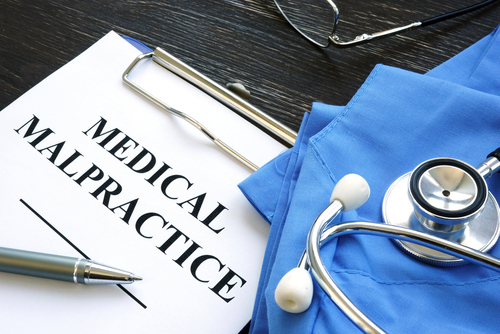
When you seek medical care, you are your best advocate and protector from medical negligence. You should familiarize yourself with the steps and tips below, which you can follow when undergoing medical care and treatment to help reduce your risk of being injured by medical malpractice.
Medical Negligence Statistics
A study by Johns Hopkins University calculated that approximately a quarter of a million deaths across the U.S. each year are attributable to medical error. This puts medical negligence as the third leading cause of death in the country, behind heart disease and cancer.
Patient safety advocates argue that the rates of patient fatalities from medical errors are much higher than reported because medical examiners, physicians, and funeral directors rarely designate medical error as a cause of death on death certificates. This makes it hard for public agencies to track the rates of patient fatalities from healthcare provider errors.
Tips to Protect Yourself from Medical Errors
Tips to keep in mind to stay safe from medical errors include:
- Look into a medical provider before starting treatment – If you are referred to a provider, you should do a little research into their credentials, experience, or whether they’ve been the subject of regulatory discipline or medical malpractice claims.
- If possible, bring someone with you to your appointments and treatments – Having another person not only provides another set of eyes and ears to note details about your treatment process, but also gives you an advocate in your corner. This can be important when you are too sick or have been sedated.
- Keep your own set of notes – While your doctors should be keeping detailed notes about your treatment, some providers are not as diligent as they should be, meaning that important details about your condition and care might slip through the cracks.
- Bring your prescription bottles (or photos of the labels) – Many medication errors arise from medications having adverse interactions with other medications the patient is taking. The medical record your provider has for you may not list all the medications you are taking, especially if you have prescriptions from multiple providers. It can be helpful to provide a doctor or nurse with a list of the medications you are currently taking to assess whether a proposed medication is appropriate for you.
- Mark surgical sites – If you are undergoing surgery or another invasive procedure where you will be put under anesthesia, you should take it upon yourself to mark the correct surgery site, in case your surgical team doesn’t do it. This can help avoid a wrong-site surgical error.
- Insist on hygiene – Hospital-acquired infections are more common than you might imagine. You should not assume that a hospital is taking all necessary precautions to prevent you from being infected while in the hospital. You can help protect yourself from infections by insisting on regular cleaning of your room (including daily changing of bedsheets) and insisting that every doctor or nurse who attends to you washes or sanitizes their hands when entering your room.
Contact A Medical Malpractice Attorney for a Consultation About Your Case in Pennsylvania
Were you or a loved one injured due to medical malpractice in Pennsylvania? Then you need to talk to an experienced medical malpractice lawyer as soon as possible for guidance on how to proceed. The Philadelphia medical malpractice attorneys at Baldwin Matzus, LLC are prepared to assist you with your legal claim. We represent victims of negligent surgeons, doctors, nurses, and pharmacists throughout Pennsylvania, including Butler, Cranberry Township, Greensburg, and Washington. Call us today at (866) 858-2276 or fill out our online contact form to schedule a consultation. Our main office is located at 310 Grant St., Suite 3210, Philadelphia, PA 15219.
The articles on this blog are for informative purposes only and are no substitute for legal advice or an attorney-client relationship. If you are seeking legal advice, please contact our law firm directly.

















